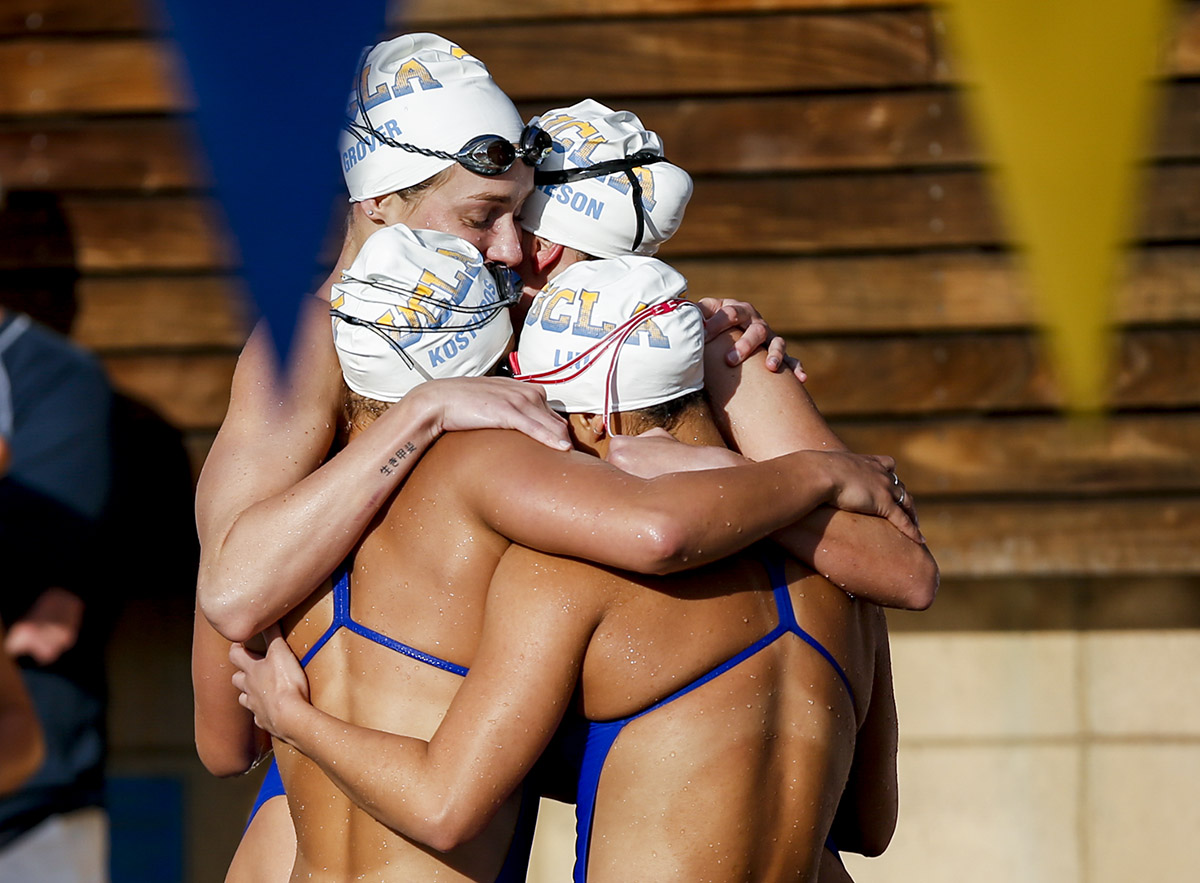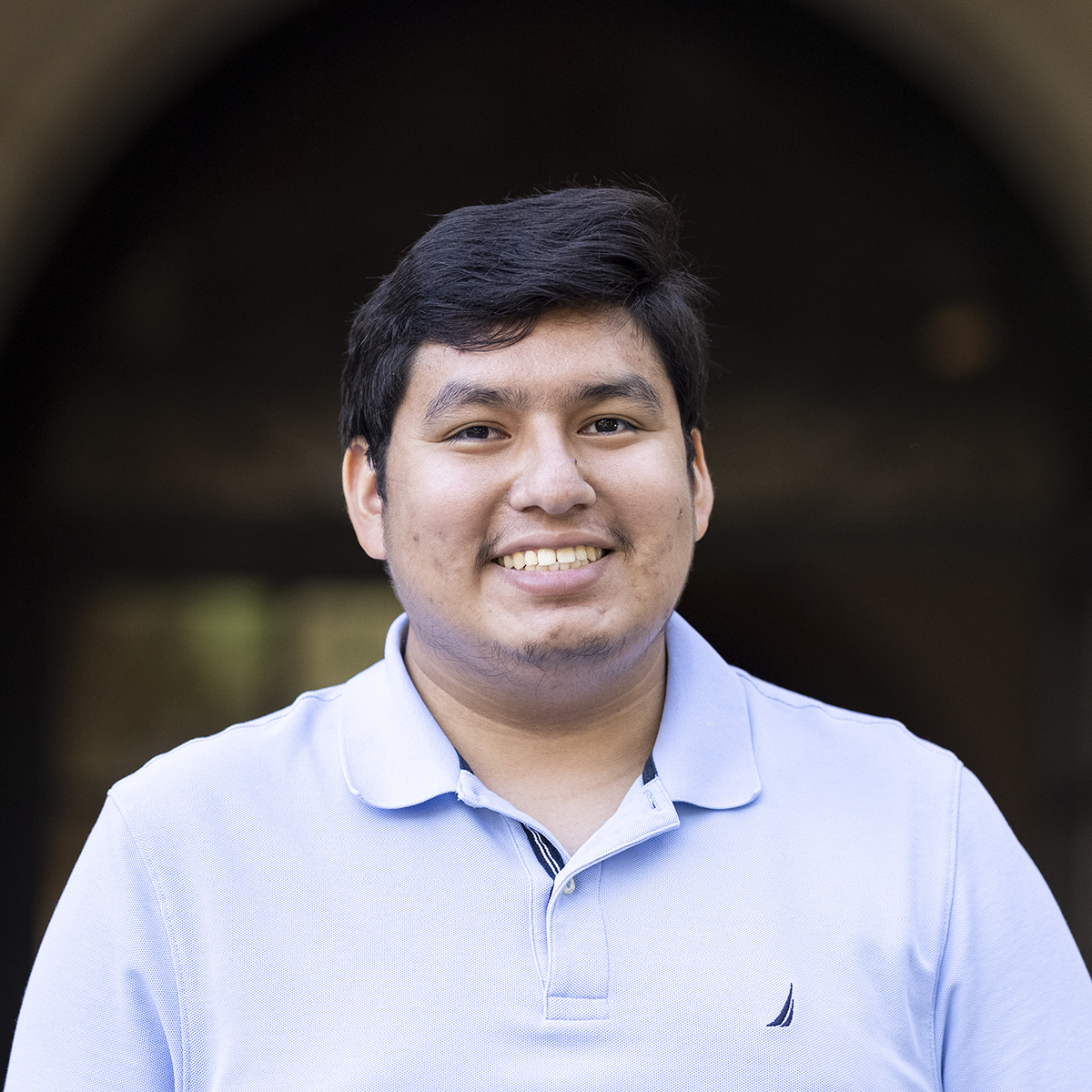Swim and dive gets back in the water after extended time off

UCLA swim and dive is back to practicing, as it’s not hard to practice safe social distancing in the pool, according to coach Jordan Wolfrum. But, the pandemic has limited training opportunities and created other concerns for the Bruins. (Andy Bao/Daily Bruin)

By Ricardo Garcia
Dec. 2, 2020 4:04 p.m.
This post was last updated Dec. 6 at 11:31 p.m.
The upcoming swim and dive season will present challenges unlike any other.
The return of college sports in 2020 has faced unprecedented challenges given COVID-19 complications and sudden outbreaks. For those that have resumed play, such as football and men’s and women’s basketball, returning to competition has been stymied by game cancellations and newly developed protocols, while other sports face season postponements.
Second-year coach Jordan Wolfrum believes UCLA swim and dive does not have to face predicating issues – such as maintaining physical distance – that contact sports like football and basketball face.
“Fortunately for us, we can do our sport at a really high level, very, very distanced and safe and in a way that is very compliant with (COVID-19) protocols,” Wolfrum said. “So even putting together the way that we will do a meet or a competition, it’s more about travel and figuring out those pieces because the reality is we don’t need to come within 6 feet of each other in most senses.”
With the resumption of certain fall and winter sport seasons, the Pac-12 put together a series of protocols for its member institutions to follow, such as daily antigen testing along with a weekly polymerase chain reaction test to be given to the student-athletes. Should a positive test come to light, cardiac monitoring is among the protocols in place to address virus-related health concerns.
Additionally, those infected – and people within their 6-foot vicinity during a 48-hour window of the positive test – will be required to quarantine for a minimum of 10 days, or seven with a negative test.
“Every day we have a symptom monitoring survey that we have to fill out before we can enter any athletic facilities,” said senior swimmer Lia Foster. “We’re getting tested pretty frequently, which has actually been really fast and really easy for us.”
For the swim and dive coaching staff, there were still many things to work out as the pandemic progressed, such as figuring out training opportunities during the initial shutdown period.
Considering the team rarely takes time off in a normal year, this was an extraordinarily long period away from the pool for many athletes.
“For many of our girls with no access to training opportunities or very limited training opportunities back home for seven or eight months, that was challenging,” Wolfrum said. “In our sport, … (extended time off is) something that we normally would not go through unless we were coming off of a really serious injury. That was a learning curve for us as coaches, and it’s a learning curve for our athletes.”
Foster – who is from Honolulu – had adequate access to resources when trying to stay in shape during the initial lockdowns, but she knew of teammates who did not.
“Luckily, I had an ocean to swim in,” Foster said. “I didn’t have a pool, and a lot of girls in California, their COVID-19 lockdowns were a lot stricter and a lot longer than other states. So there is a big difference, (as) some girls were able to swim and train and some girls were not and just had to learn how to run … for the first time in their life.”
Equally as important and concerning for the coaching staff is helping its athletes maintain their mental health in a time where people are isolating from others. The pandemic has been a source of stress, fear and anxiety for many, as reported by the Centers for Disease Control and Prevention.
Seeing the team’s apprehension dissipate after a long period of time apart has been a relief for Wolfrum and her staff as the team begins practicing again.
“I think for all of us, these past eight or nine months have been really isolating and particularly lonely,” Wolfrum said. “To be able to get out in the sunshine one or two times a day and seven, eight, nine times a week and be with some people and work off some steam and be focused on something that isn’t the pandemic for just a couple of hours a day, I think it’s important, and it’s been healthy, and it’s been enjoyable for all of us.”
Despite the obstacles thrown at the Bruins in preparation for the upcoming season, Wolfrum still looks to help her athletes reach their full potential after a season in which the team had its best Pac-12 finish since 2014.
During the offseason, Wolfrum added to her staff with the hire of volunteer assistant coach Kristine Quance Julian, Swimming World magazine’s 1997 American Swimmer of the Year. Quance Julian will serve as a strong technician and is the epitome of a strong, powerful female athlete, according to Wolfrum.
“We’re all dealing with … losses – things where we’ve either missed out on this year, had family that missed out on big moments or big events,” Quance Julian said. “But we just tried to stay positive and, just like I tell my swimmers, ‘You cannot control everything that happens to you, but you absolutely can control how you respond to it.'”


